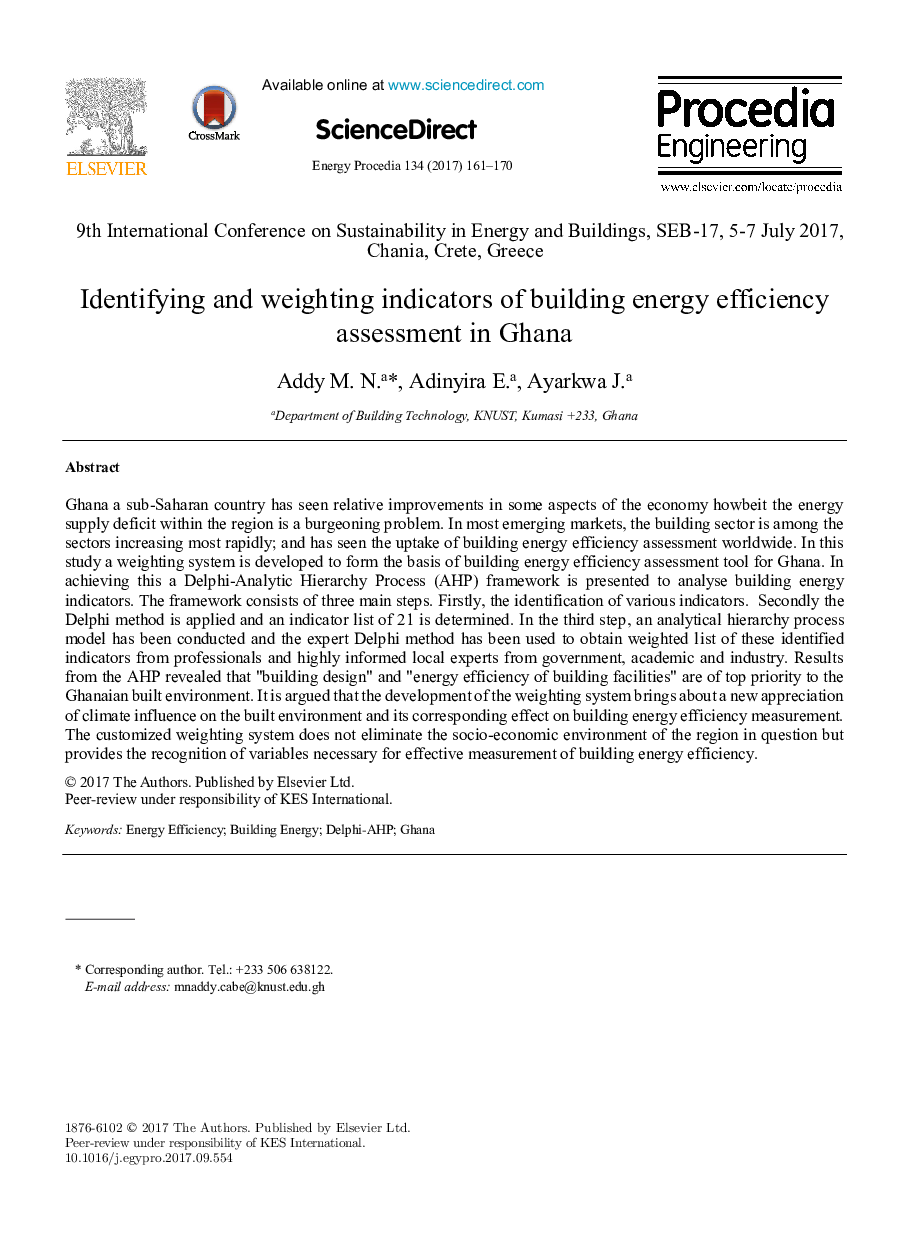| Article ID | Journal | Published Year | Pages | File Type |
|---|---|---|---|---|
| 7918474 | Energy Procedia | 2017 | 10 Pages |
Abstract
Ghana a sub-Saharan country has seen relative improvements in some aspects of the economy howbeit the energy supply deficit within the region is a burgeoning problem. In most emerging markets, the building sector is among the sectors increasing most rapidly; and has seen the uptake of building energy efficiency assessment worldwide. In this study a weighting system is developed to form the basis of building energy efficiency assessment tool for Ghana. In achieving this a Delphi-Analytic Hierarchy Process (AHP) framework is presented to analyse building energy indicators. The framework consists of three main steps. Firstly, the identification of various indicators. Secondly the Delphi method is applied and an indicator list of 21 is determined. In the third step, an analytical hierarchy process model has been conducted and the expert Delphi method has been used to obtain weighted list of these identified indicators from professionals and highly informed local experts from government, academic and industry. Results from the AHP revealed that "building design" and "energy efficiency of building facilities" are of top priority to the Ghanaian built environment. It is argued that the development of the weighting system brings about a new appreciation of climate influence on the built environment and its corresponding effect on building energy efficiency measurement. The customized weighting system does not eliminate the socio-economic environment of the region in question but provides the recognition of variables necessary for effective measurement of building energy efficiency.
Related Topics
Physical Sciences and Engineering
Energy
Energy (General)
Authors
M.N. Addy, E. Adinyira, J. Ayarkwa,
